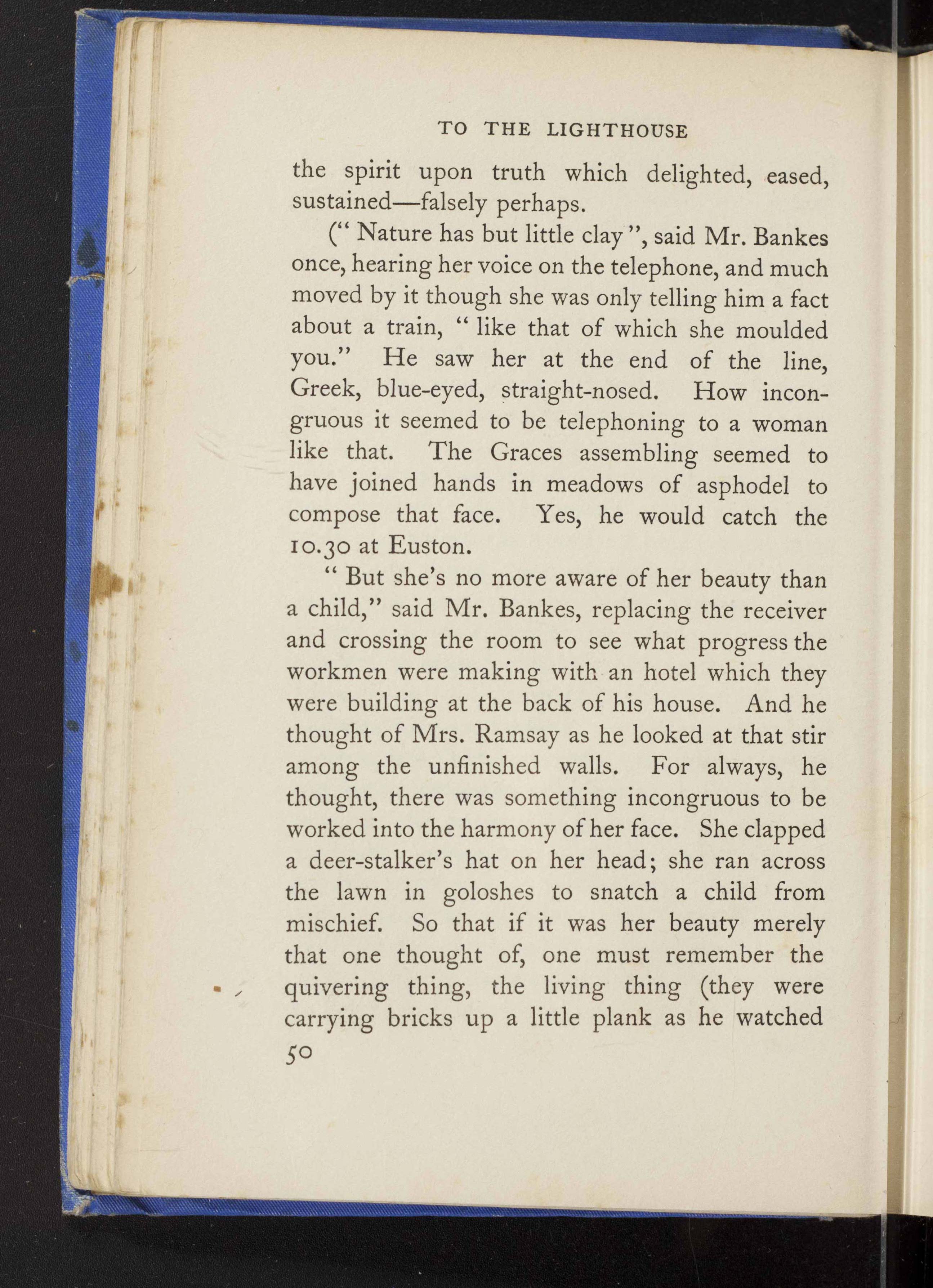
TO THE LIGHTHOUSEthe spirit upon truth which delighted, eased,sustained—falsely perhaps.("Nature has but little clay", said Mr. Bankesonce, hearing her voice on the telephone, and muchmoved by it though she was only telling him a factabout a train, "like that of which she mouldedyou." He saw her at the end of the line,Greek, blue-eyed, straight-nosed. How incon-gruous it seemed to be telephoning to a womanlike that. The Graces assembling seemed tohave joined hands in meadows of asphodel tocompose that face. Yes, he would catch the10.30 at Euston.
"But she’s no more aware of her beauty thana child," said Mr. Bankes, replacing the receiverand crossing the room to see what progress theworkmen were making with an hotel which theywere building at the back of his house. And hethought of Mrs. Ramsay as he looked at that stiramong the unfinished walls. For always, hethought, there was something incongruous to beworked into the harmony of her face. She clappeda deer-stalker’s hat on her head; she ran acrossthe lawn in goloshes to snatch a child frommischief. So that if it was her beauty merelythat one thought of, one must remember thequivering thing, the living thing (they werecarrying bricks up a little plank as he watched
50








